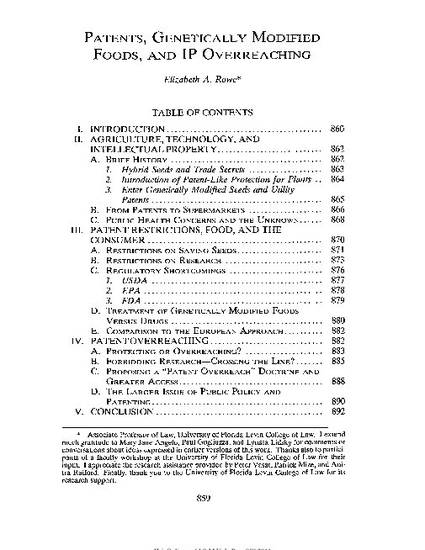
Genetically engineered plants and animals have become and will continue to constitute a large part of the food we consume. The United States is the world's largest producer of genetically modified foods, making American consumers the most exposed population to these products. Agricultural biotechnology patents spur and support innovation. Accordingly, patent law is one of the main contributors to this phenomenon that has changed not only the kinds of food we eat, but the nature of the agri-business industry that produces these foods. This Article takes on an area of concern involving the patenting of food that has remained unexplored: the effect on independent research and scientific inquiry. There is currently a void in the scientific knowledge relating to the effects of genetically modified foods on human health and the environment. Patent law perpetuates that void by allowing patent holders to control and restrict independent research in the area. This is facilitated mostly through no-research clauses in license agreements with farmers. This further exacerbates the problem of incomplete information, and ultimately threatens public health and safety. As the editors of Scientific American Magazine have argued, "when scientists are prevented from examining the raw ingredients in our nation’s food supply or from testing the plant material that covers a large portion of the country’s agricultural land, the restrictions on free inquiry become dangerous." Accordingly, the Article explores whether these research restrictions are contrary to the public interest and inconsistent with the underlying goals of the patent law.
